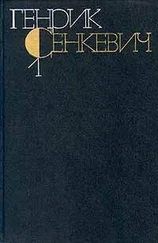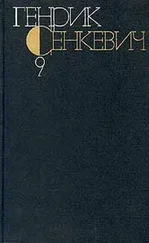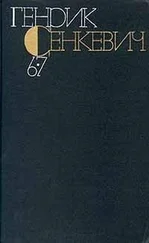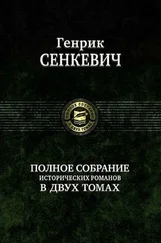Генрик Сенкевич - Pan Michael
Здесь есть возможность читать онлайн «Генрик Сенкевич - Pan Michael» — ознакомительный отрывок электронной книги совершенно бесплатно, а после прочтения отрывка купить полную версию. В некоторых случаях можно слушать аудио, скачать через торрент в формате fb2 и присутствует краткое содержание. Жанр: foreign_antique, foreign_prose, на английском языке. Описание произведения, (предисловие) а так же отзывы посетителей доступны на портале библиотеки ЛибКат.
- Название:Pan Michael
- Автор:
- Жанр:
- Год:неизвестен
- ISBN:нет данных
- Рейтинг книги:3 / 5. Голосов: 1
-
Избранное:Добавить в избранное
- Отзывы:
-
Ваша оценка:
- 60
- 1
- 2
- 3
- 4
- 5
Pan Michael: краткое содержание, описание и аннотация
Предлагаем к чтению аннотацию, описание, краткое содержание или предисловие (зависит от того, что написал сам автор книги «Pan Michael»). Если вы не нашли необходимую информацию о книге — напишите в комментариях, мы постараемся отыскать её.
Pan Michael — читать онлайн ознакомительный отрывок
Ниже представлен текст книги, разбитый по страницам. Система сохранения места последней прочитанной страницы, позволяет с удобством читать онлайн бесплатно книгу «Pan Michael», без необходимости каждый раз заново искать на чём Вы остановились. Поставьте закладку, и сможете в любой момент перейти на страницу, на которой закончили чтение.
Интервал:
Закладка:
In all the shifting scenes of the conflict begun by the resolute Bogdan, there was nothing more striking than the conduct and person of Yuri Hmelnitski, who renounced all the work of his father. Great, it is said, was the wonder of the Poles when they saw him enter their camp. Bogdan Hmelnitski, a man of iron will and striking presence, had filled the whole Commonwealth with terror; his son gave way at the very first test put upon him, and in person was, as the Poles said, a dark, puny stripling, more like a timid novice in a monastery than a Cossack. In the words of the captive voevoda, Sheremetyeff, he was better fitted to be a gooseherd than a hetman.
The Polish generals thought now that the conflict was over, and that the garrisons of Moscow would evacuate the Ukraine; but they did not. At this juncture the Polish troops, unpaid for a long time, refused service, revolted, formed what they called a "sacred league," and lived on the country. The Polish army vanished from the field, and after it the Tartars. Young Hmelnitski turned again to Moscow, and writing to the Tsar, declared that, forced by Cossack colonels, he had joined the Polish king, but wished to return to his former allegiance. Whatever his wishes may have been, he did not escape the Commonwealth; stronger men than he, and among them Vygovski, kept him well in hand. The Ukraine was split into two camps: that west of the river, or at least the Cossacks under Yuri Hmelnitski, obeyed the Commonwealth; the Eastern bank adhered to Moscow.
Two years later, Yuri, the helpless hetman, left his office and took refuge in a cloister. He was succeeded by Teterya, a partisan of Poland, which now made every promise to the leading Cossacks, not as in the old time when the single argument was sabres.
East of the Dnieper another hetman ruled; but there the Poles could take no part in struggles for the office. The rivalry was limited to partisans of Moscow. Besides the two groups of Cossacks on the Dnieper, there remained the Zaporojians. Teterya strove to win these to the Commonwealth, and Yan Kazimir, the king, assembled all the forces he could rally and crossed the Dnieper toward the end of 1663. At first he had success in some degree, but in the following year led back a shattered, hungry army.
Teterya had received a promise from the Zaporojians that they would follow the example of the Eastern Ukraine. The king having failed in his expedition, Teterya declared that peace must be concluded between the Commonwealth and Moscow to save the Ukraine; that the country was reduced to ruin by all parties, neither one of which could subjugate the other; and that to save themselves the Cossacks would be forced to seek protection of the Sultan.
Doroshenko succeeded Teterya in the hetman's office, and began to carry out this Cossack project. In 1666 he sent a message to the Porte declaring that the Ukraine was at the will of the Sultan.
The Sultan commanded the Khan to march to the Ukraine. Toward the end of that year the Tartars brought aid to the Cossacks, and the joint army swept the field of Polish forces.
Meanwhile negotiations had been pending a long time between the Commonwealth and Moscow. An insurrection under Lyubomirski brought the Poles to terms touching boundaries in the north. In the south Moscow demanded, besides the line of the Dnieper, Kieff and a certain district around it on the west. This the Poles refused stubbornly till Doroshenko's union with Turkey induced them to yield Kieff to Moscow for two years. On this basis a peace of twenty years was concluded in 1667, at Andrussoff near Smolensk. This peace became permanent afterward, and Kieff remained with Moscow.
In 1668 Yan Kazimir abdicated, hoping to secure the succession to a king in alliance with France, and avoid a conflict with Turkey through French intervention. No foreign candidate, however, found sufficient support, and Olshovski, 2 2 The bishop who visited Zagloba at Ketling's house, see pages 121-126.
the crafty and ambitious vice-chancellor, proposed at an opportune moment Prince Michael Vishnyevetski, son of the renowned Yeremi, and he was elected in 1669. The new king, of whom a short sketch is given in "The Deluge" (Vol. II. page 253), was, like Yuri Hmelnitski, the imbecile son of a terrible father. Elected by the lesser nobility in a moment of spite against magnates, he found no support among the latter. Without merit or influence at home, he sought support in Austria, and married a sister of the Emperor Leopold. Powerless in dealing with the Cossacks, to whom his name was detestable, without friends, except among the petty nobles, whose support in that juncture was more damaging than useful, he made a Turkish war certain. It came three years later, when the Sultan marched to support Doroshenko, and began the siege of Kamenyets, described in "Pan Michael."
After the fall of Kamenyets, the Turks pushed on to Lvoff, and dictated the peace of Buchach, which gave Podolia and the western bank of the Dnieper, except Kieff and its district, to the Sultan.
The battle of Hotin, described in the epilogue, made Sobieski king in 1674. This election was considered a triumph for France, an enemy of Austria at that time; and during the earlier years of his reign Sobieski was on the French side, and had sound reasons for this policy. In 1674 the Elector of Brandenburg attacked Swedish Pomerania; France supported Sweden, and roused Poland to oppose the Elector, who had fought against Yan Kazimir, his own suzerain. Sobieski, supported by subsidies from France, made levies of troops, went to Dantzig in 1677, concluded with Sweden a secret agreement to make common cause with her and attack the Elector. But in spite of subsidies, preparations, and treaties, the Polish king took no action. Sweden, without an ally, was defeated; Poland lost the last chance of recovering Prussia, and holding thereby an independent position in Europe.
The influence of Austria, the power of the church, and the intrigues of his own wife, bore away Sobieski. He deserted the alliance with France. To the end of his life he served Austria far better than Poland, though not wishing to do so, and died in 1696 complaining of this world, in which, as he said, "sin, malice, and treason are rampant."
Jeremiah Curtin.Cahirciveen, County Kerry, Ireland,
August 17, 1893.
Note. – The reign of Sobieski brought to an end that part of Polish history during which the Commonwealth was able to take the initiative in foreign politics. After Sobieski the Poles ceased to be a positive power in Europe.
I have not been able to verify the saying said to have been uttered by Sobieski at Vienna. In the text (page 401) he is made to say that Pani Wojnina (War's wife) may give birth to people, but Wojna (War) only destroys them. Who the Pani Wojnina was that Sobieski had in view I am unable to say at this moment, unless she was Peace .
CHAPTER I
After the close of the Hungarian war, when the marriage of Pan Andrei Kmita and Panna Aleksandra Billevich was celebrated, a cavalier, equally meritorious and famous in the Commonwealth, Pan Michael Volodyovski, colonel of the Lauda squadron, was to enter the bonds of marriage with Panna Anna Borzobogati Krasienski.
But notable hindrances rose, which delayed and put back the affair. The lady was a foster-daughter of Princess Griselda Vishnyevetski, without whose permission Panna Anna would in no wise consent to the wedding. Pan Michael was forced therefore to leave his affianced in Vodokty, by reason of the troubled times, and go alone to Zamost for the consent and the blessing of the princess.
But a favoring star did not guide him: he did not find the princess in Zamost; she had gone to the imperial court in Vienna for the education of her son. The persistent knight followed her even to Vienna, though that took much time. When he had arranged the affair there successfully, he turned homeward in confident hope.
Читать дальшеИнтервал:
Закладка:
Похожие книги на «Pan Michael»
Представляем Вашему вниманию похожие книги на «Pan Michael» списком для выбора. Мы отобрали схожую по названию и смыслу литературу в надежде предоставить читателям больше вариантов отыскать новые, интересные, ещё непрочитанные произведения.
Обсуждение, отзывы о книге «Pan Michael» и просто собственные мнения читателей. Оставьте ваши комментарии, напишите, что Вы думаете о произведении, его смысле или главных героях. Укажите что конкретно понравилось, а что нет, и почему Вы так считаете.









